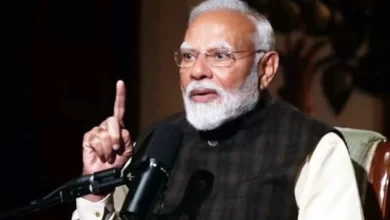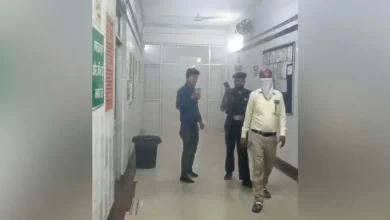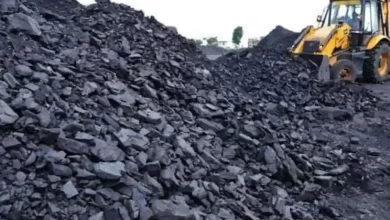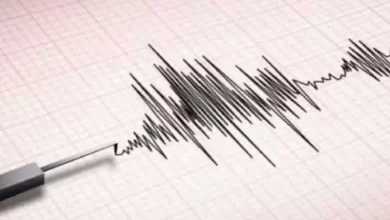History repeats itself in Pakistan with Imran Khan’s arrest
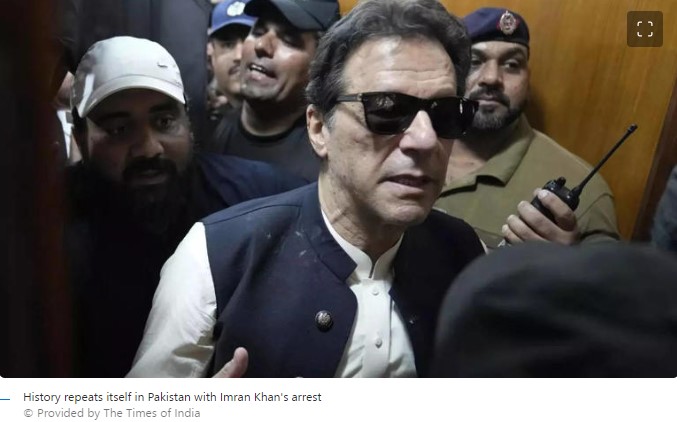
Arson, vandalism, plumes of smoke and gunshots…all hell broke loose in Pakistan as former Prime Minister Imran Khan was arrested on corruption charges following months of trial and investigation.
Khan’s supporters stormed government buildings, vandalized properties and clashed with security forces.
Omar Ayub Khan, another supporter of Pakistan Tehreek-e-Insaf said that “Imran Khan was abducted illegally and confined in a case which has no meaning whatsoever”.
These unprecedented scenes…described as a ‘Black Chapter’ by the Pakistan army, marked a fresh low in Pakistan’s political discourse which has been plagued by months of political and economic crises.
What led to this state of chaos and upheaval? Why is a former Prime Minister in the line of fire? Why has almost every Pakistani Prime Minister met a similar fate?
Sushant Sareen a senior fellow at the Observer Research Foundation (ORF) had said while commenting on the country’s political culture “Pakistan’s political culture is like that, you are either in the prime minister’s house and the day you leave the prime minister’s house very often you are in Adiala jail (Rawalpindi, Pakistan). So they shuffle between those two places”.
What role does Pakistan’s army have to play in the deadly unrest?
In a stunning twist of fate, former Pakistani Prime Minister Imran Khan was arrested on corruption charges by Pakistani paramilitary, forcefully escorted out of the Islamabad High Court premises, and taken to Rawalpindi- the home to GHQ, the Pakistan army headquarters.
Immediately following his arrest, the country descended into chaos and anarchy ensued. Never seen before scenes surfaced as Imran Khan’s supporters cried foul play and vowed vengeance.
Ghulam Farooq one of many Imran Khan supporters previously had said that “yesterday, they the (government) inflicted a great atrocity on us. They crossed our red line. But they should not expect that after that we are going to sit quietly. We are going to teach them a lesson that they will remember all their lives”.
The House of an army corps commander was attacked; the Radio Pakistan building was set ablaze and Khan’s supporters aggressively sought retribution from the Pakistan army, alleging that Khan’s arrest was a politically motivated act of army handiwork.
Muneer Bangash yet another Imran Khan supporter said while he was protesting against Khan’s arrest “For Khan, we are willing to lay down our lives. We have closed our businesses and have come out (to protest), although I am the sole breadwinner of my family. Anytime, we can besiege any government building, and we are ready to do it. Whether they shoot down one hundred or three hundred or a thousand, no matter how many Party workers they shoot down, we will continue (protesting).”
It is alleged that Imran Khan and his spouse were given land worth millions of dollars by a real estate mogul via a charitable trust. Imran Khan has denied any wrongdoing.
In the eyes of his loyal supporters, Imran is beyond criticism and can do no wrong. Opposing voices, however, maintain that Imran Khan was among the top corrupt leaders while in office and deserves to be barred from public life.
Prime Minister Shehbaz Sharif, whose alliance had ousted Khan from the Prime Minister chair through a no-confidence vote vowed that demonstrators would be dealt with an iron hand.
Opposing the adverse situation after the arrest of Khan, Shehbaz Sharif the current Prime Minister of the country said that “they detained people inside vehicles on roads, risking their lives. So much so that they pulled patients from ambulances and set the vehicles on fire. Private and government vehicles were burned. The perpetrators who take the law into their hands will be dealt with an iron hand. They will be punished according to the law and constitution”.
While Khan’s arrest led to an unprecedented level of unrest in the country, this wasn’t the first instance of a former Prime Minister being arrested in Pakistan. Nearly all prime ministers in the last few decades have either been found guilty of corruption or have fallen victim to the powerful Pakistan army- the country’s deep state which holds great sway in almost every political and business sector of the country.
From Zulfikar Ali Bhutto and his daughter, Benazir Bhutto to Nawaz Sharif, Yousaf Raza Gillani, Shahid Khaqan Abbasi- all imprisoned on one or the other charge.
In such pandemonium, where everything was seemingly spiralling out of control, a disinformation war also ensued. Social media was rife with both plausible and conspiracy theories.
There are many who believe that the Pakistan army-whose intervention in the country’s political affairs is no secret and which has previously staged several military coups, is conspiring to stage one more.
The claim cannot be ruled out for Pakistan observers believe that the atmosphere is conducive for the Pakistan army to take over and use the current state of unrest and chaos as justification.
The army has ruled Pakistan directly for nearly 33 years in the little over 75-year history of the country. It is also accused of undermining democratic institutions and manipulating the political process to consolidate its own power.
Sareen also said that, If the army steps in and that might be the last resort, it might happen in a couple of days, for all we know. Then the problem is what magic wand does the army have to sort these similar matters out? Are they going to shoot at people? What are theu7 going to do? How are they going to fix the economy?” this stand is especially correct especially when the people are protesting.
Imran Khan’s arrest and the subsequent outbreak of chaos coincide with the massive economic crisis the people of the country have been grappling with for the past several months.
The country is yet to recover from the trail of destruction left by the floods last year. Inflation is at an all-time high; forex reserves have depleted and the number of countries lending a helping hand is rapidly decreasing.
Tilak Devasher an author and member of the National Security Advisory Board (NSAB) said, “This is how the spiral has gone out of control in Pakistan, they have the largest contiguous irrigation network in the world. Till about two or three years ago they had surplus wheat, which they would send out today they have to import three million tonnes of wheat. You know why the acreage under wheat has been reduced they don’t have enough fertilizers they don’t have enough water.”
Even China, Pakistan’s so-called all-weather friend, has reprimanded the country for not being proactive enough in dealing with both immediate and long-term challenges. Experts believe that Pakistan’s turbulent political situation can deteriorate further if the ruling government fails to take effective action immediately.
But above all, it is imperative for Pakistan to resolve Khan’s situation, for if it is left unaddressed, it can escalate into unprecedented levels of turmoil and tumult.



